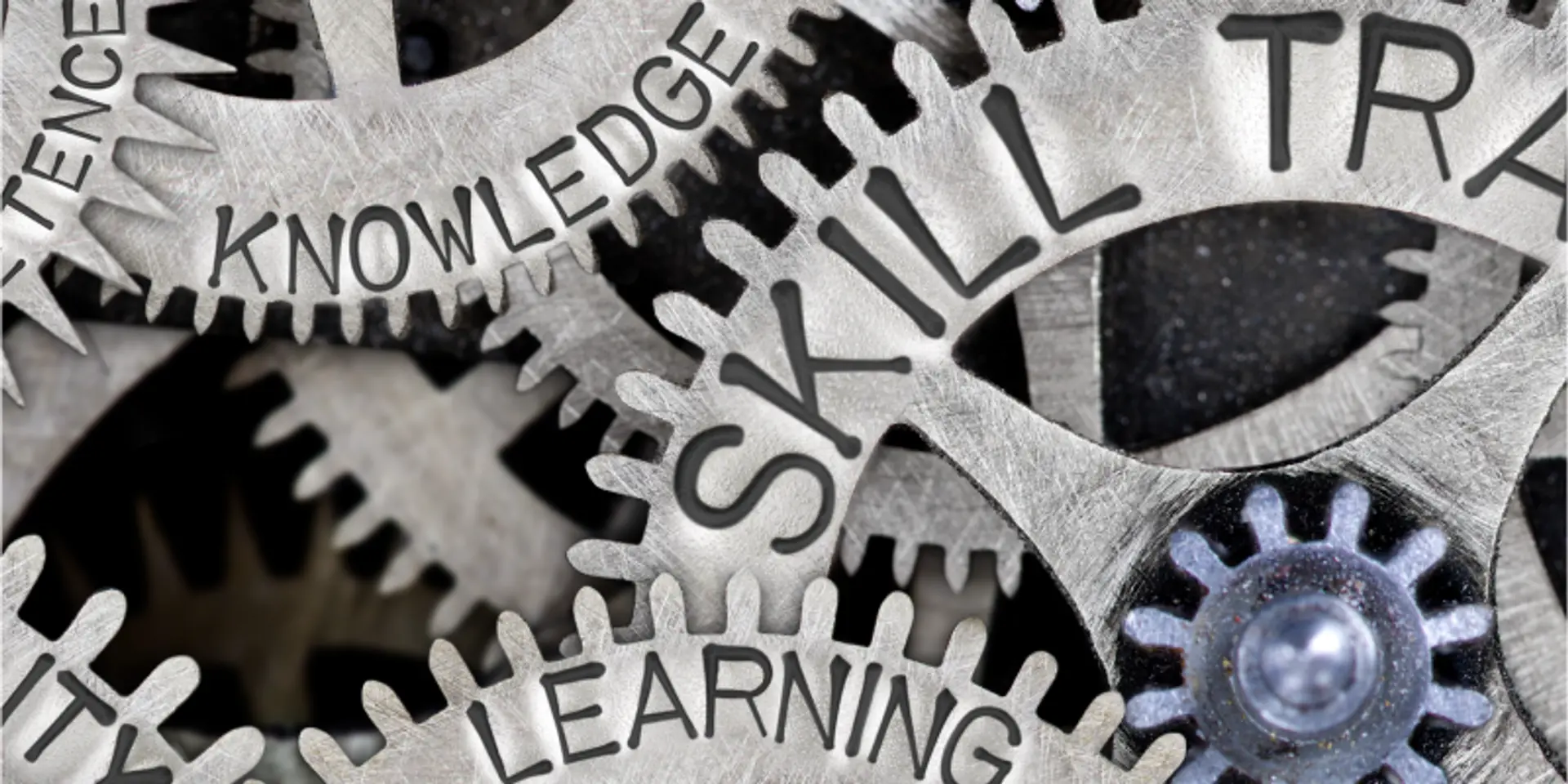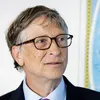Connectivity, culture: the ups and downs of knowledge sharing during work-from-home
Virtual work has sped up the creation of digital content, but also deprived communities of some serendipitous and informal interactions at the workplace. This panel shares some insights, trends and tips.
The Bangalore K-Community is a group of professionals in knowledge management (KM) who meet regularly to discuss case studies, advances, and trends in the field. In the 'new normal,' the periodic meetup was held entirely online, and featured two-panel discussions on Knowledge Management and Work From Home and Research Frontiers in the Knowledge Economy.
Knowledge-sharing activities in large firms depend on offline and online interactions, but the pandemic has pushed many work activities entirely online. This mode of work from home (WFH) poses new challenges and opportunities for KM, as discussed by the panellists and participants consisting of chief knowledge officers (CKOs), consultants, academics, and other professionals.
The speakers were Ved Prakash, CKO, Trianz; Rudolph D'Souza, CKO, Afcons Infrastructure; and Dr Randhir Pushpa, Chief Consultant, ACIES Innovations. The virtual event was hosted by MSNM Besant Institute of PG Studies in Mangaluru. As the moderator, here is my cluster of takeaways from the wide-ranging and informative panel discussion.
See also YourStory’s 15-part article series as the media partner for CII’s Global Knowledge Summit 2020: Knowledge Leadership, KM in the Age of AI, Gamification, Storytelling, Knowledge Sharing in the COVID-19 Era, and Eye on AI.
YourStory also moderated the summit panel on Knowledge Excellence: Winners of the Global MIKE Awards, and published profiles of the Most Innovative Knowledge Enterprise (MIKE) award winners: EY, Tata Steel, Cognizant Technology Solutions, Afcons Infrastructure, Petroleum Development Oman, BINUS University, and Mobarakeh Steel Company.
From ‘BC’ (before coronavirus) to pandemic era
Depending on their industrial sector, some companies were better prepared for the shift to WFH than others, such as IT firms and ‘born digital’ companies.
“Even in the pre-COVID era, there were digital workplace readiness plans in place, along with policies for security and business continuity,” explains Ved Prakash, CKO at digital transformation services firm Trianz. In early March, organisation-wide guidelines on employee wellness, social distancing and travel restrictions were put in place. Additional stocks of laptops and other digital devices were procured.
“In the week of March 9, a special business continuity simulation was carried out for 72 hours, in addition to the quarterly simulations,” Ved says. In the week of March 16, the organisation was prepared for the impending change, via an all-hands meet addressed by the CEO and President of the company. Weekly client communications were also initiated.
“The company transitioned to WFH mode in the week of national lockdown on March 24. All employees were able to work from home, and all client engagements continued without interruption,” Ved proudly says.
Since then, the company has innovated to thrive in this new normal. All business operations are now digital. There are weekly ‘I Am OK’ surveys, as well as phone counselling with empanelled doctors.
“Affected communities are assisted through Trianz Cares initiatives,” Ved adds. Informal and formal interactions are promoted through Digital Cafes and L&D initiatives.
The situation was different for construction and infrastructure company Afcons. “As a hard-core infrastructure company that works face to face and believes that’s the only way, the first 20 days were spent in a state of uncertainty,” recalls Rudolph D'Souza, CKO, Afcons Infrastructure.
Inter-personal connects were made via phone calls. “Fortunately, familiarity with the KM Portal was a blessing, so access to information did not face any hurdles,” he adds.
Afcons’ Corporate Communications Team stepped up quickly to the task. “We had regular communiques from the top leadership. Very soon, it led to a daily mailer, sifting the wheat from the chaff,” Rudolph describes.
Information on COVID-19, physical and mental fitness, safety, and WFH were some of the topics covered. “These were cleared by our resident medical doctor, so there was a voice of authenticity. Over time, the Corporate Communications Team ran campaigns for employee engagement – sharing artwork, songs and activities from the project teams. This kept the morale high,” Rudolph explains.
Luckily, the Knowledge Services Group (KSG) had started the agile process in design earlier using a collaboration platform. “So some projects were familiar with the technology. KSG started a weekly webinar on Wednesdays called Wednesday Wisdom. It replicated the Wednesday Sharing sessions of the head office,” Rudolph says.
Two weeks later, the webinar was opened to all employees across all projects. “It was a big hit! From a weekly session, we moved to a daily webinar featuring in-house experts as well as professors from the National Institute of Construction Management and Research (NICMAR),” he adds.
KSG then restarted the key activities of the ‘Learn before, Learn during. and Learn after’ model using the collaboration platform. “These are lessons-learned sessions for knowledge capture, or kick-off workshops and activity-based classrooms for knowledge dissemination,” Rudolph explains.
The advantage of hosting these sessions online was that multiple experts could be brought into a single session to deal with multiple areas of specialisation. “This would have been a luxury if physical travel was involved. So we adapted and now we are thriving,” Rudolph proudly says.
In fact, the Bangalore K-Community meetup itself benefited from going online by attracting more diverse participants. Attendees were not just from Bengaluru but other cities in India and from overseas: South Africa, Israel and Thailand.
Challenges of WFH
The shift to WFH has unfortunately led to a decline in informal and serendipitous encounters where much of the knowledge sharing and connects can happen. The energy levels, as compared to physical meetings, is also reduced.
“Not being able to tap information and knowledge beyond team members has been a challenge for some during WFH. They are also cut off from informal networks,” observes Dr Randhir Pushpa, Chief Consultant, ACIES Innovations.
“During an in-person session of Lessons Learned or Activity-Based Classrooms, a fixture was the site visit that preceded the actual session,” Rudolph of Afcons explains. Half a day would be spent visiting the work front, meeting people, asking questions, and seeing things first-hand. These cannot be effectively conveyed by photos, videos or presentations, he says.
Another challenge is inadequate eye contact. “The presentation fills the screen, so physical cues are lacking. It is harder to spot when someone is waiting to say something, and then draw them out. Online discussions do seem to lack the warmth and comfort that a physical session would provide,” Rudolph observes.
“There are no water-cooler moments where a lot of casual interaction happens. The commute time used to actually help many individuals in organising their thoughts and planning for the day. There is also a feeling of social isolation,” Ved of Trianz explains.
Ideation and brainstorming have taken a different shape in the virtual world. “They are effective where some clarity is already there, but spontaneity is missing,” he adds. Other challenges relate to cybersecurity.
Advantages and opportunities
At the same time, WFH opens up opportunities for effective creation of online content and explicit knowledge, thanks to the digital format and channels.
“The value of KM platforms for content management and collaboration is being realised even more,” Ved of Trianz observes. Something as simple as capturing all details in a document is picking up, and processes are being redefined for embedding knowledge.
Collaborative content development has become the norm. “The power of conversations is being felt directly now, and experience sharing has gone up. Formerly silent contributors are speaking up in the digital medium and their voice is heard,” Ved adds.
Though working hours may be becoming longer, there is increased flexibility in scheduling activities. “KM is providing methods and techniques for teams to be more productive and efficient,” he says.
Remote work is reinforcing existing connections as well. “There are not as many distractions from co-workers during WFH, except family,” Ved jokes.
One clear benefit of the online Knowledge Exchange sessions at Afcons is that every session is recorded, Rudolph observes. “Some recordings are edited for brevity and uploaded, others are edited to extract key learnings, while yet other recordings serve to ensure accurate transcription when preparing the learnings,” he explains.
For example, all webinars with expert sessions have been uploaded on ‘The Knowledge Channel’ on the collaboration platform “The channel is available 24x7 to all employees, even on their mobiles. These are new assets that were generated during WFH,” Rudy adds.
“The adoption of KM platforms has gone up in companies, since virtual spaces are the only option after traditional modes for accessing information and knowledge got cut off,” observes Randhir of ACIES Innovations.
WFH and knowledge metrics
WFH is accelerating some aspects of KM, which can be tracked by relevant metrics. “There is a distinct move towards outcome-based culture as opposed to activity-based culture,” explains Ved of Trianz. Metrics tracked include levels of creation and reuse of knowledge artefacts, and skill level upgradation in new competency tracks.
Afcons has moved beyond just activity tracking. “Every activity we do now has an impact measure. Our theme for the year, decided before the lockdown, was Step Up. 20-21: The Year of ImpAct. We track every action and measure it through Mission 10000, our gamified programme for projects to measure their progress towards a knowledge enterprise,” Rudolph explains.
KM professionals should share with leadership the metrics on the extent of KM adoption and impact. “This will help in making a good case for KM. Metrics related to employee productivity and cost savings should also be reported,” suggests Randhir of ACIES Innovations.

From productivity to innovation
The pressure of the pandemic has forced companies to move beyond safety and productivity to pivots and innovation.
Afcons has a trademarked innovation framework called IMPROVATION™. “It is based on three triggers: customer centricity, constraint-driven inspiration, and challenging the known,” Rudolph explains.
The Knowledge Services Group promotes the framework and applies it to deliver projects on or before time, within budget, and with the highest customer satisfaction. “In an industry where globally 70 percent of projects are over budget and delayed, this approach through innovation is an anomaly,” Rudolph observes.
At Trianz, KM is promoting remote ideation through creative use of digital tools. “There is an emphasis on building accelerators and reusable components, and several of them have resulted in new offerings,” Ved explains.
Teams are strengthening partnerships with other functions and delivering more cohesive cross-functional services. “Knowledge-sharing sessions are helping teams apply the same knowledge in different contexts,” he adds.
“With COVID-19, the world has become more flat. It has become easier to source ideas from across the world. This factor should be leveraged to the maximum as it helps in innovation,” advises Randhir of ACIES Innovations.
These days, employees are more open to working virtually and more comfortable with employees across the world. “This change in behaviour should be leveraged,” he adds.
Sales online
Business activities that depend a lot on a series of physical meetings and forums have been hit hard by WFH, such as sales. Knowledge management can play a supportive role in this context.
Sales teams should adapt to these changes. “Clients are also becoming more and more open to finalising deals virtually. What is required are approaches to make online meetings and discussions more impactful,” Randhir of ACIES Innovations advises. KM techniques like continuous improvement, lessons learned, and reflections help here.
“K-Bank, our structured organisational repository, is the biggest source of relevant material for digital marketing campaigns,” explains Ved of Trianz. Client-facing teams and subject matter experts are being prompted to come up with blogs and articles to exhibit thought leadership. “This is an organised activity, and training for such writings have been conducted as well,” he adds.
Sales team have their own corner called K-Bid on the Trianz enterprise knowledge portal, where all knowledge resources needed for sales and pre-sales are available. “This is being further strengthened by them with qualified content,” Ved says.
Decision-making
Knowledge management has helped with better and faster decision-making during WFH. Uncertainty typically calls for more and better knowledge. “KM is enabling faster and easier access to different types of information and knowledge. This can help in better-informed decisions,” Randhir of ACIES Innovations suggests.
Afcons’ Knowledge Services Group curates knowledge assets and sends them to those who may require them for tenders, or for better execution. We are working on ‘knowledge collections’ – exhaustively curated knowledge which can be used in design, methods and tenders,” Rudolph explains. The team is ensuring that everyone from a junior engineer to a project controller has the right knowledge available to act expeditiously.
At Trianz, KM has eased decision-making with the ready availability of knowledge and data at organisational, account and project levels. “KM has helped in making tasks person-independent with structured knowledge capture at the point of creation itself,” Ved says.
The road ahead
Trianz and Afcons are continuing to plan and execute on their knowledge journeys ahead. “We will continue building a collaborative culture. We will increase activity in organisational communities and sub-communities,” Ved of Trianz explains. These include focus areas on cloud, analytics, digital, design, infrastructure, and testing.
KM Unconferences have moved to virtual mode, and are seeing more participation with more intensity. A new digital workplace called Pulse has been developed, as a single hub for transactions, learning needs, and knowledge.
“Project managers are being upskilled via online collaborative sessions. In-person courses have been converted to e-learning, including behavioural ones supplemented with virtual mentorship and online knowledge sharing,” Ved adds.
Afcons is creating organisation-wide capacity as it prepares to move up the value chain from a world-class engineering company to a knowledge enterprise. “It is a transformation journey that we embarked on quite a few years back – but the shoots are now visible,” Rudolph proudly says.
Recommendations for knowledge practitioners
All three speakers offer tips for knowledge practitioners on KM and WFH. “Become internal consultants to teams. Understand the challenges and pain-points they are facing, and then see how a KM intervention can help,” Ved of Trianz recommends.
“Upskill yourselves on applications of KM technologies, such as machine learning, chatbots, and data analytics. Use these in drawing out insights that could be useful in decision making,” he adds.
“Focus on bringing up the informal virtual world of the organisation, as it is going to be more powerful and prominent than the physical world,” Randhir of ACIES Innovations recommends.
Rudolph of Afcons urges knowledge practitioners to find out the business issue and work with the team on it. He also suggests fun and informal activities that play an enabling role.
As an example, he recommends putting organisational knowledge into fun facts and even fun laws. “Afcons has laws like the ‘Law of Concrete’ – as soon as you think you’ve timed the pour just right, the foreman will announce a glitch,” Rudolph jokes.
“In this way, you are pointing out an issue that needs to be addressed without pointing fingers at anyone,” he explains. Gamification is another effective tool, he adds.
Trianz conducts morale-boosting events like Virtual Happy Hours, and other events to showcase talent. “Trianz Knowledge League’s Season 4 was organised during the lockdown with a theme of Connect the Dots. It provided a lot of excitement and enthusiasm, and in the process, increased awareness of KM manifold,” Ved explains.
The concluding panel of the Bangalore K-Community was on Research Frontiers in Knowledge Ecosystems. It featured Prof M H Bala Subrahmanya of IISc (author of Technology Business Incubators) and Prof. Somprakash Bandyopadhyay of IIM Calcutta (author of Social Knowledge Management for Rural Empowerment).
The panel was moderated by Dr Molly Chaudhuri, Director at MSNM Besant Institute Of PG Studies. She called for greater collaboration between the academic, corporate and civil society sectors to further the cause of knowledge for development and prosperity.
Edited by Kanishk Singh












